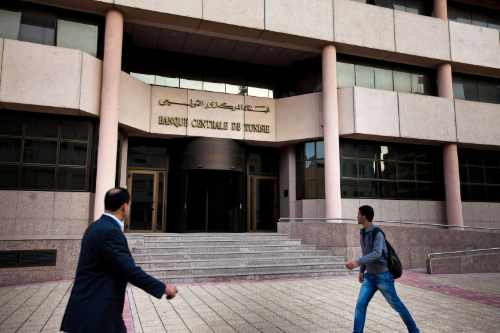Tunisia’s Foreign Reserves Drop 13% After Eurobond Repayment

TLDR
- Tunisia’s foreign-exchange reserves fell 13% in a single day, dropping from 26.7 billion dinars ($8.4 billion) to 23.3 billion dinars ($7.3 billion)
- The sharp decline follows the government’s $1 billion Eurobond repayment, reducing import coverage from 119 to 104 days.
- The government has turned to the central bank to fund external debt, amid weak revenue from key export sectors
Tunisia’s foreign-exchange reserves fell 13% in a single day, dropping from 26.7 billion dinars ($8.4 billion) to 23.3 billion dinars ($7.3 billion), according to Banque Centrale de Tunisie (BCT) data. The sharp decline follows the government’s $1 billion Eurobond repayment, reducing import coverage from 119 to 104 days.
The government has turned to the central bank to fund external debt, amid weak revenue from key export sectors such as manufacturing and phosphates. Political instability has worsened economic challenges, and President Kais Saied’s rejection of an IMF bailout last year has limited external funding options.
Tunisia’s reliance on domestic borrowing has squeezed liquidity for investment, while the BCT has urged banks to restrict dividend distributions to limit forex outflows. Growth remains sluggish, and economic recovery prospects are dim without stronger government intervention.
Daba is Africa's leading investment platform for private and public markets. Download here
Key Takeaways
Tunisia’s use of central bank reserves to repay external debt signals growing financial pressure, limiting funds for economic development. While budget austerity has controlled deficits, it has also constrained growth. The government’s reluctance to engage with the IMF narrows financing options, increasing reliance on domestic borrowing, which further restricts investment. The weak performance of key export sectors exacerbates external imbalances. With foreign reserves depleting and import coverage shrinking, Tunisia faces heightened economic risks. Investors and creditors will closely monitor the government’s next steps, particularly how it plans to manage upcoming debt obligations without external support.

Next Frontier
Stay up to date on major news and events in African markets. Delivered weekly.
Pulse54
UDeep-dives into what’s old and new in Africa’s investment landscape. Delivered twice monthly.
Events
Sign up to stay informed about our regular webinars, product launches, and exhibitions.




